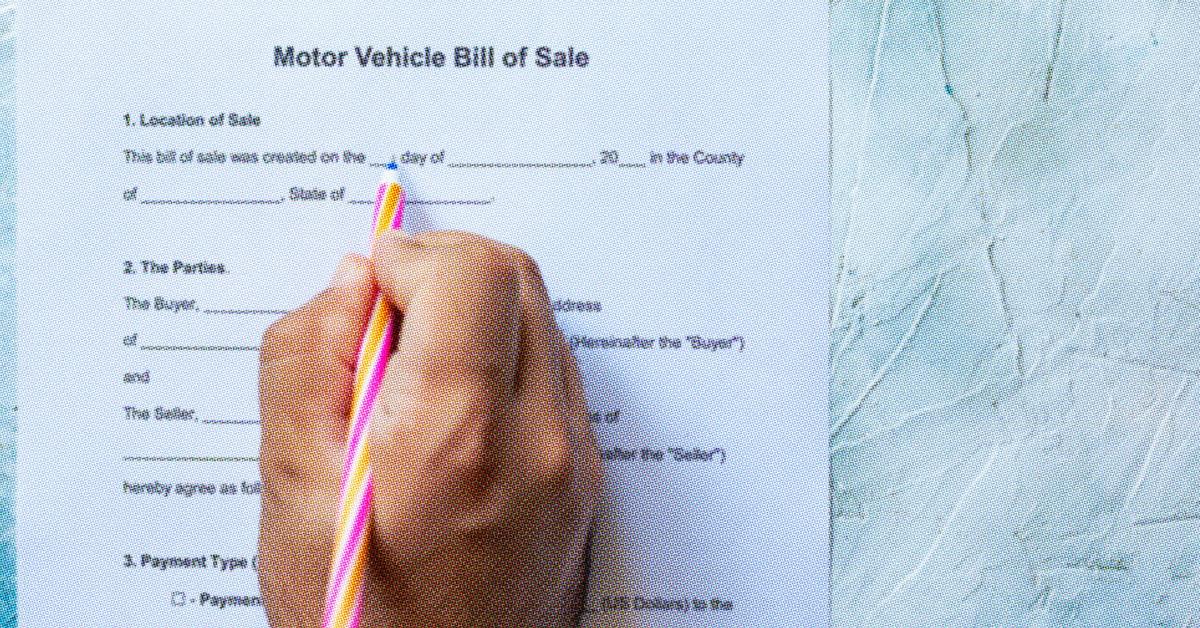5 Essential Documents for Your Permit Application

Applying for a permit can be a daunting process, whether it's for construction, business operations, or any other activity that requires regulatory approval. Ensuring you have all the necessary documentation in place can streamline the application process and significantly increase your chances of approval. Here are five essential documents you should prepare for your permit application:
1. Project Plans and Specifications

Before you even think about submitting a permit application, having detailed project plans and specifications is crucial. These documents serve as the blueprint of your project and communicate what exactly you are planning to do:
- Site Plan: Shows the layout, elevations, and cross-sections.
- Floor Plans: Depicts the layout of each floor with room dimensions, fixture placement, and exits.
- Elevations: Provides the exterior view from different angles.
- Mechanical, Electrical, and Plumbing Plans: Detail the systems necessary for the project.
These plans should be prepared by a professional to ensure compliance with local building codes and standards.

2. Property Deed and Ownership Documents

Proving that you have the legal right to make changes or start an operation on the property is fundamental. This documentation includes:
- The Property Deed, which establishes ownership.
- A Survey or Title Report to verify property boundaries and identify any easements or restrictions.
3. Proof of Insurance

Depending on the permit type, you might need to provide:
- Liability Insurance: To cover potential damage or injury during the project.
- Workers’ Compensation Insurance: If the project involves employees.
Having insurance not only protects you but also reassures the issuing authority of your commitment to safety and legal compliance.
4. Environmental Impact Assessments

For projects that could have an environmental impact, an:
- Environmental Impact Assessment (EIA) or Statement of Environmental Effects (SoEE) might be required to detail how your project will interact with the environment, addressing issues like:
- Waste management
- Water usage
- Impact on local wildlife
The EIA helps authorities evaluate whether your project aligns with environmental protection standards.
5. Applicable Permits and Approvals

Sometimes, you need additional permits or approvals before applying for your main permit:
- Zoning Approval: To ensure your project complies with local zoning laws.
- Land Use Permits: For changes in land use or development.
- Special Permits: For activities like wetlands protection, historical site modifications, or outdoor events.
These documents demonstrate that you've already obtained the necessary permissions for specific aspects of your project.
Additional Considerations

Besides these five essential documents, consider the following:
- Consult with local authorities or a permit expediter to ensure you have all required documents for your particular application.
- Keep digital copies of all your documents. Electronic submission can speed up the process.
- Be thorough: Incomplete or inaccurate documentation can lead to delays or denials.
📌 Note: Always check with your local regulatory body for any project-specific documentation requirements, as they can vary significantly.
In summary, having the right documentation for your permit application is not just about complying with regulations; it's also about demonstrating to the issuing authority that your project is well-planned, complies with safety standards, and respects environmental considerations. By ensuring your paperwork is in order, you're setting yourself up for a smoother permit application process, which is a crucial step towards realizing your project goals.
What if I’m missing one of these documents?

+
If you’re missing a document, find out from the permitting office what the process is to submit it later or if there are alternatives accepted. In some cases, you might need to apply for an extension or submit a revised application with the complete documentation.
Can I submit these documents electronically?

+
Many jurisdictions now offer electronic submission, but it’s important to check if they accept it and in what format. Make sure your files are compatible with their system requirements.
Do I need professional help to prepare these documents?

+
While some documents like the property deed or insurance can be managed by you, plans and assessments usually require professional expertise. Architects, engineers, or consultants can provide accurate and compliant documentation.